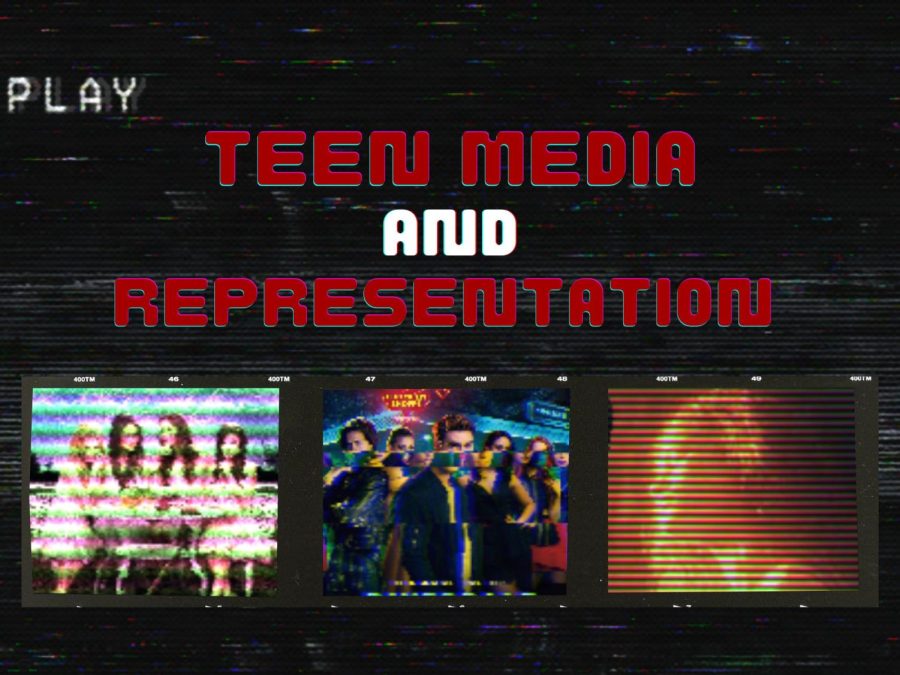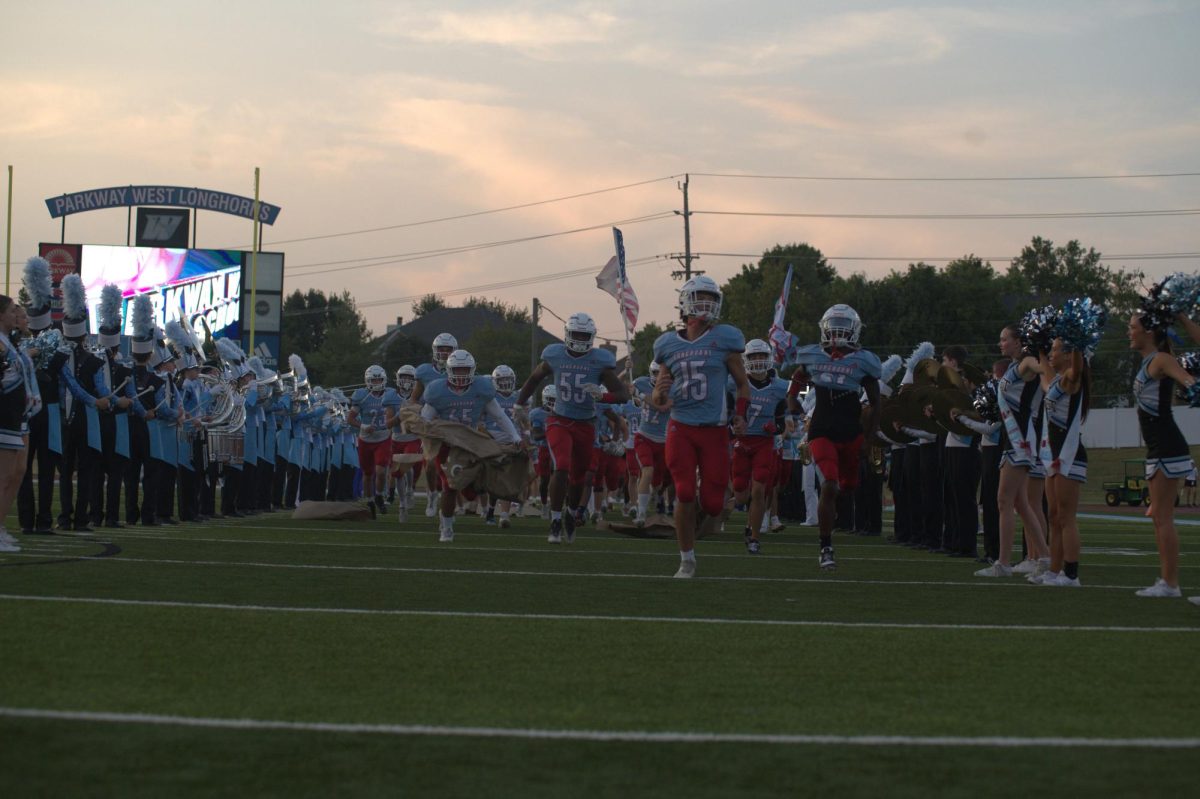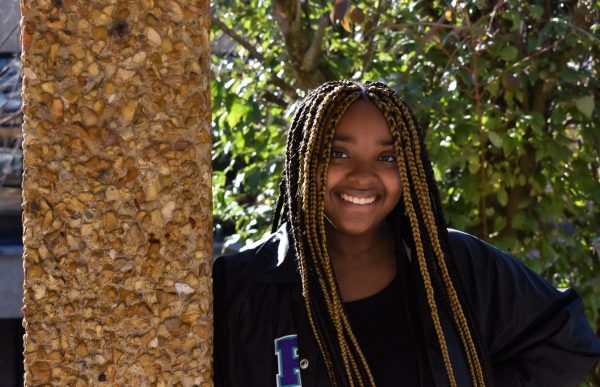I will be the first to admit that I love trashy shows. Reality TV, vulgar comedies, stupid Hallmark movies ÔÇö I will watch all of it. But in my latest binge of TV series, my focus has been on media that caters to my generationÔÇÖs age range.
ThereÔÇÖs something not quite right with some of the recent TV shows IÔÇÖve been seeing. These shows are telling stories about teenagers, except many of them are . . . not. These stories are about high school . . . but theyÔÇÖre not. These stories are about adolescents . . . but theyÔÇÖre not.
ItÔÇÖs like staring into a mirror, but instead of seeing yourself, you see a grotesque figure that hardly resembles your likeness; an image that is sure to leave you scratching your head in confusion.┬á
These teen TV shows that ÔÇ£displayÔÇØ our generation just fall short of correctly representing teens. One of the strangest things about these shows is that these teenagers donÔÇÖt act like teenagers. TheyÔÇÖre either hilariously dumb or weirdly adult-like, which isnÔÇÖt surprising since most of the teenagers on TV shows are played by adults who look like adults.
Take ÔÇ£Riverdale,ÔÇØ for example. This six-season CW-produced and Netflix-distributed series revolves around Archie (KJ Apa) and his friends in a small town that is chock-full of mysteries. The show is notorious for having laughably atrocious dialogue and mind-boggling plot twists, but one of the most abysmal aspects of ÔÇ£RiverdaleÔÇØ is the fact that the main characters are basically mini-adults for most of the time that theyÔÇÖre supposed to be teenagers. Veronica (Camila Mendes) owns a nightclub, Jughead (Cole Sprouse) is the leader of a gang and Archie . . . well, who knows what he does? Besides being a complete mess of a show, it is also a complete mess of teenagerhood. The whole point of being a teenager is that weÔÇÖre not yet adults. By heavily adultifying their teenage characters, ÔÇ£RiverdaleÔÇØ is discrediting the teenage experience and creating a false representation of adolescence.
Furthermore, ÔÇ£EuphoriaÔÇØ is a critically-acclaimed Home Box Office (HBO) series primarily about Rue (Zendaya), a teenager who struggles with addiction. ThatÔÇÖs definitely an acceptable plot point ÔÇö around 700,000 teenagers in the US struggle with some form of opioid abuse. But within the same show, we see a rather explicit scene that reveals a lot more than what the audience would expect from a show thatÔÇÖs supposed to be about minors. It would be different if these programs were making a point about the exploitation of teenagers or the abuse of power and the effect they have on victims, but theyÔÇÖre not. These scenes are for someoneÔÇÖs ÔÇö certainly not mine ÔÇö enjoyment, which, again, is strange because these television series are supposed to be about minors.
This isnÔÇÖt the first time that these types of media have been criticized, and it certainly wonÔÇÖt be the last. However, showrunners could be a lot more mindful of what they choose to produce and how it affects the overall audience of the show. Research attests that the media plays a strong role in how teenagers view sex and relationships, so itÔÇÖs important to illustrate true representation on the screen.┬á
And itÔÇÖs not that any of these shows are bad, per se ÔÇö except for ÔÇ£Riverdale;ÔÇØ that show is horrendous and I will die on that hill ÔÇö but is it too much to ask for a little realism here? They donÔÇÖt feel like shows about teens; they feel as if they are masquerading as teen shows, but are really for adults.
This is emphasized through the excessive sexuality that is exhibited in both shows, which is completely bizarre. ItÔÇÖs not that teenagers donÔÇÖt have sex or drink alcohol, because many do, but the over-sexualization and light glorification of it all makes it weird, especially when you think about the fact that theyÔÇÖre underage minors.┬á
Not to mention that the awkward, inconvenient details of adolescence are left out of these shows. Explain to me how IÔÇÖm supposed to have flawless skin and perfect teeth when everything stresses me out, please. Tell me how IÔÇÖm supposed to juggle being the most unpopular kid in school while simultaneously being class president, choosing between three people to date and running from a serial killer. Last June, I think I guzzled down a Red Bull before my AP Exam since I was up until 2 a.m. the previous night studying, and then I still did awful on the test. Someone should create a show about that instead.
To be fair, my life is pretty boring, and IÔÇÖm not sure anyone would want to watch a show about me. But there are ways to make a show exploring unrealistic premises without hypersexualization, creating nonrepresentational beauty standards or adultified characters who are supposed to be teenagers.
Some teen shows that have been more faithful to teen representation and fun to watch are ÔÇ£Never Have I Ever,ÔÇØ ÔÇ£On My BlockÔÇØ and ÔÇ£Young Royals.ÔÇØ Focusing on the most unpopular girl in school being fought over by two guys, teens getting caught up in a drug ring and a prince at a boarding school, respectively, these three TV shows are still based on fairly unrealistic premises. However, they all feature authentic aspects of teenagerhood that reflect our current population.
Devi (Maitreyi Ramakrishnan) from ÔÇ£Never Have I EverÔÇØ is one of my favorite characters. Sure, she can make dumb, emotionally-driven decisions and be a bit shallow, but so has every teenager at one point in their life. The lessons that she learns along her journey are ones that teenagers can resonate with; lessons and problems dealing with family, relationships and self-worth seem all too familiar to typical and atypical teens alike.┬á
“On My BlockÔÇØ imparts a friendship that waxes and wanes throughout high school while providing a look at the lives of teenagers who live in an inner-city neighborhood ravaged by gang wars. Although its premise can be illogical and silly at times, the characters all seem very realistic: they fight, laugh, grow apart and reunite.┬á┬á
Finally, ÔÇ£Young RoyalsÔÇØ features actors with acne instead of caking their faces in makeup; the teenagers in that show look like teenagers ripped from my school halls. The characters from this show also interact like students at my school do, not phone-obsessed zombies that seem to permeate stereotypes about todayÔÇÖs teenagers.┬á┬á
While not perfect, these television programs are taking steps in the right direction to exhibit real teen culture during the late 2010s-early 2020s. Not all television catering to teens has to oversexualize its teen characters or fly off the rails to be considered good television, and these shows display that fact. IÔÇÖm quite pleased to see more teen movies and TV series that embody the teenage spirit of Gen Z instead of the cringe-worthy or adultifying TV media that have shamefully defined our generation for the past decade.┬á
ThereÔÇÖs nothing wrong with trashy television, but TV programs must not rely on the over-sexualization and adultification of their teenage characters to make a story shocking or good. We need teen shows to continue making more easily relatable figures so we can build that image in the mirror into something weÔÇÖre proud of ÔÇö together.┬á



![Sitting courtside before a junior varsity girlsÔÇÖ tennis match, senior Tanisi Saha rushes to finish her homework. Saha has found herself doing academic work during her athletic activities since her freshman year. ÔÇ£Being in sports has taught me how to stay organized and on top of my schoolwork. [With] a busy practice and game schedule, IÔÇÖve learned to manage my homework and study time better,ÔÇØ Saha said.](https://pwestpathfinder.com/wp-content/uploads/2025/11/DSC_0022-1200x800.jpg)
![Sophomore Maryem Hidic signs up for an academic lab through Infinite Campus, a grading and scheduling software. Some students enjoyed selecting their responsive schedule in a method that was used school-wide last year. ÔÇ£I think it's more inconvenient now, because I can't change [my classes] the day of, if I have a big test coming and I forget about it, I can't change [my class],ÔÇØ sophomore Alisha Singh said.](https://pwestpathfinder.com/wp-content/uploads/2025/10/DSC_0012-1200x801.jpg)
![Senior Dhiya Prasanna examines a bottle of Tylenol. Prasanna has observed data in science labs and in real life. ÔÇ£[I] advise the public not to just look or search for information that supports your argument, but search for information that doesn't support it,ÔÇØ Prasanna said.](https://pwestpathfinder.com/wp-content/uploads/2025/10/DSC_0073-2-1200x800.jpg)
![Junior Fiona Dye lifts weights in Strength and Conditioning. Now that the Trump administration has instituted policies such as AI deregulation, tariffs and university funding freezes, women may have to work twice as hard to get half as far. "[Trump] wants America to be more divided; he wants to inspire hatred in people,ÔÇØ feminist club member and junior Clara Lazarini said.](https://pwestpathfinder.com/wp-content/uploads/2025/05/Flag.png)
![As the Trump administration cracks down on immigration, it scapegoats many immigrants for the United StatesÔÇÖ plights, precipitating a possible genocide. Sophomore Annabella Whiteley moved from the United Kingdom when she was eight. ÔÇ£ItÔÇÖs pretty scary because IÔÇÖm on a visa. When my visa expires next year, IÔÇÖm not sure whatÔÇÖs going to happen, especially with [immigration] policies up in the air, so it is a concern for my family,ÔÇØ Whiteley said.](https://pwestpathfinder.com/wp-content/uploads/2025/05/DSC_0077-7copy.jpg)
![Shifting global trade, President Donald TrumpÔÇÖs tariffs are raising concerns about economic stability for the U.S. and other countries alike. ÔÇ£[The tariffs are] going to pose a distinct challenge to the U.S. economy and a challenge to the global economy on the whole because it's going to greatly upset who trades with who and where resources and products are going to come from,ÔÇØ social studies teacher Melvin Trotier said.](https://pwestpathfinder.com/wp-content/uploads/2025/05/MDB_3456-1200x800.jpg)



![Some of the most deadly instances of gun violence have occurred in schools, communities and other ÔÇÿsafe spacesÔÇÖ for students. These uncontrolled settings give way to the need for gun regulation, including background and mental health checks. ÔÇ£Gun control comes about with more laws, but there are a lot of guns out there that people could obtain illegally. What is a solution that would get the illegal guns off the street? We have yet to find [one],ÔÇØ social studies teacher Nancy Sachtlaben said.](https://pwestpathfinder.com/wp-content/uploads/2025/01/DSC_5122-1200x800.jpg)

![Sophomore Shree Sikkal Kumar serves the ball across the court in a match against Lindbergh. Sikkal Kumar has been a varsity member of the varsity girlsÔÇÖ tennis team for two years, helping her earn the number two rank in Class 2 District 2.ÔÇ£When matches are close, itÔÇÖs easy to get nervous, but I [ground] myself by[staying] confident and ready to play,ÔÇØ Sikkal Kumar said.](https://pwestpathfinder.com/wp-content/uploads/2025/11/DSC2801-1200x798.jpg)
![Dressed up as the varsity girlsÔÇÖ tennis coach Katelyn Arenos, senior Kate Johnson and junior Mireya David hand out candy at West HighÔÇÖs annual trunk or treat event. This year, the trunk or treat was moved inside as a result of adverse weather. ÔÇ£As a senior, I care less about Halloween now. Teachers will bring their kids and families [to WestÔÇÖs Trunk or Treat], but there were fewer [this year] because they just thought it was canceled [due to the] rain. [With] Halloween, I think you care less the older you get,ÔÇØ Johnson said.](https://pwestpathfinder.com/wp-content/uploads/2025/10/DSC00892-1-1200x800.jpg)
![Focused on providing exceptional service, sophomore Darsh Mahapatra carefully cleans the door of a customerÔÇÖs car. Mahapatra has always believed his customers deserve nothing less than the best. ÔÇ£[If] theyÔÇÖre trusting us with their car and our service, then I am convinced that they deserve our 100 percent effort and beyond,ÔÇØ Mahapatra said.](https://pwestpathfinder.com/wp-content/uploads/2025/10/DSC_0018-1200x800.jpg)
![Sophomore Aleix Pi de Cabanyes Navarro (left) finishes up a soccer game while junior Ava Muench (right) warms up for cross country practice. The two came to Parkway West High School as exchange students for the 2025-2026 school year. ÔÇ£The goal for the [exchange] program is to provide opportunities for both Parkway students and our international exchange students to learn about other cultures, build connections and become confident, capable, curious and caring ÔÇö ParkwayÔÇÖs Four CÔÇÖs ÔÇö in the process,ÔÇØ Exchange Program Lead Lauren Farrelly said.](https://pwestpathfinder.com/wp-content/uploads/2025/10/Feature-Photo-1200x800.png)
![Leaning on the podium, superintendent Melissa Schneider speaks to Parkway journalism students during a press conference. Schneider joined Parkway in July after working in the Thompson School District in Colorado. ÔÇ£My plan [to bond with students] is to get things on my calendar as much as possible. For example, being in [classes] is very special to me. I am trying to be opportunistic [meeting] kids [and] being in [the school] buildings. I have all the sports schedules and the fine arts schedules on my calendar, so that when I'm available, I can get to them,ÔÇØ Schneider said.](https://pwestpathfinder.com/wp-content/uploads/2025/09/IMG_5425-1200x943.jpeg)
![Gazing across the stage, sophomore Alexis Monteleone performs in the school theater. The Monteleone familyÔÇÖs band ÔÇ£Monte and the MachineÔÇØ has been releasing music since 2012, but Alexis started her own solo career in 2024 with the release of her first single, Crying Skies. ÔÇ£My whole family is very musical, [and I especially] love writing [songs with them],ÔÇØ Monteleone said.](https://pwestpathfinder.com/wp-content/uploads/2025/09/DSC7463-1200x798.jpg)

![Leaping through the air, senior Tyler Watts celebrates his first goal of the season, which put the Longhorns up 1-0 against the Lafayette Lancers. Watts decided to play soccer for West for his last year of high school and secured a spot on the varsity roster. ÔÇ£[Playing soccer for West] is something I had always dreamed of, but hadnÔÇÖt really had a good opportunity to do until now. ItÔÇÖs [really] fun being out [on the field], and IÔÇÖm glad I decided to join the team. ItÔÇÖs just all about having fun with the boys and enjoying what time we have left together,ÔÇØ Watts said.](https://pwestpathfinder.com/wp-content/uploads/2025/09/DSC_1951-1200x855.jpg)


Jeanne-Mari├® • Mar 5, 2025 at 4:48 am
Stunning work for someone your age! Keep going, don’t undervalue yourself or your impact, I have a feeling you’ll do great things ƒÿë
Anna Claywell • Oct 19, 2022 at 11:55 am
Great story!!